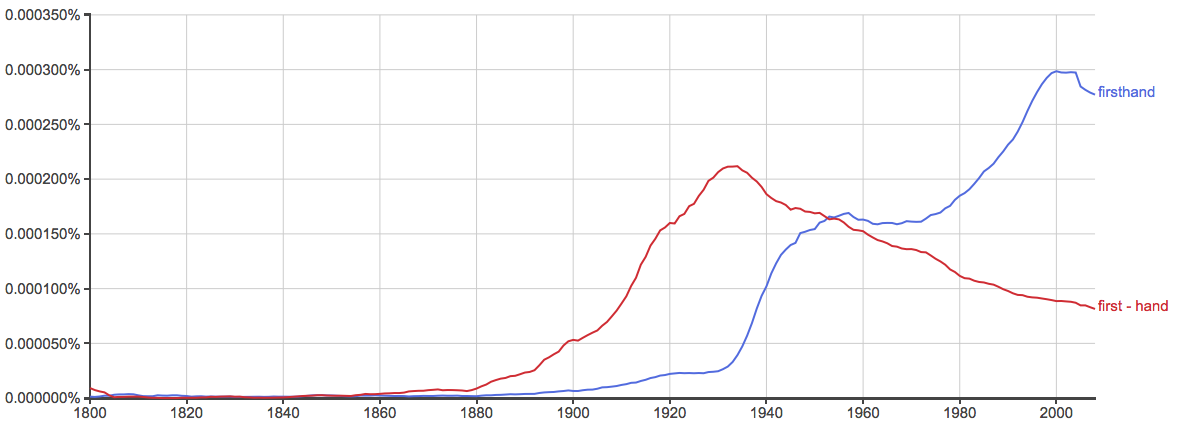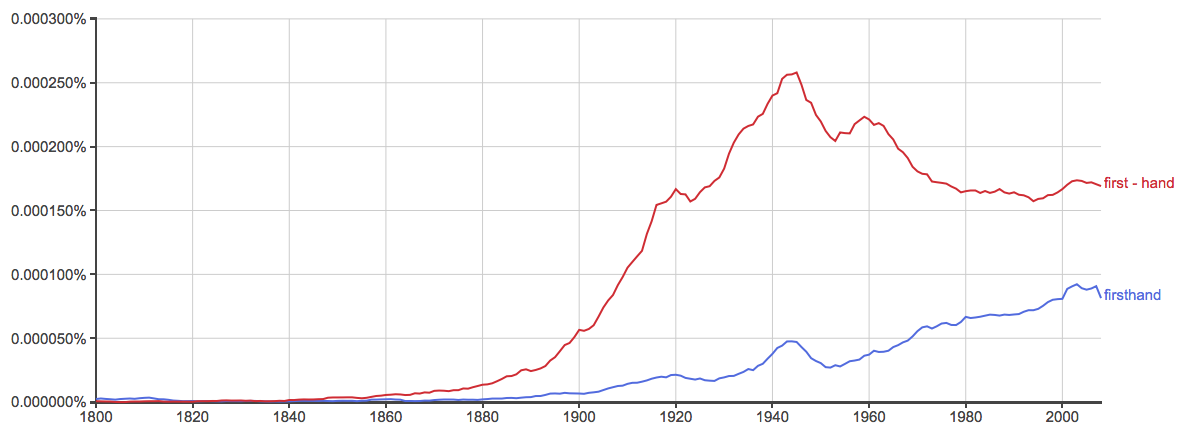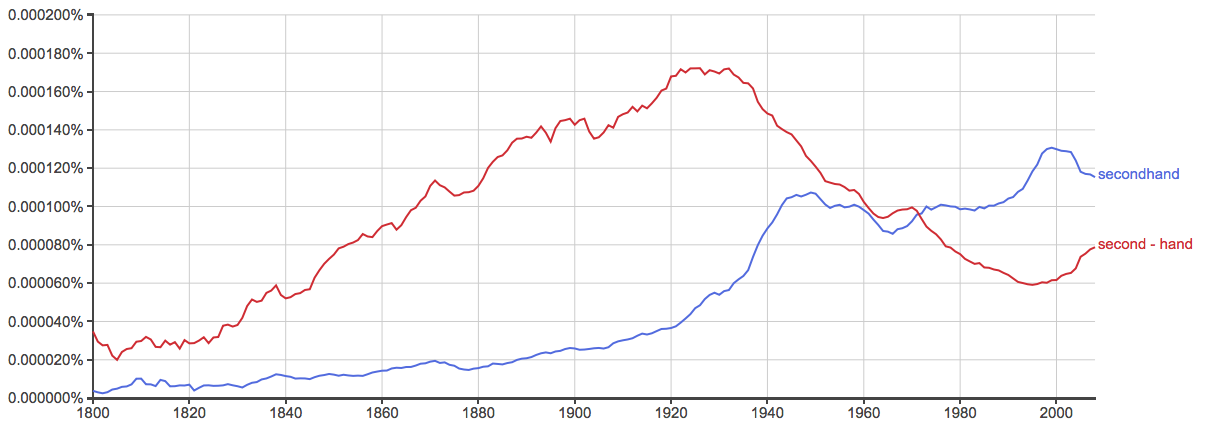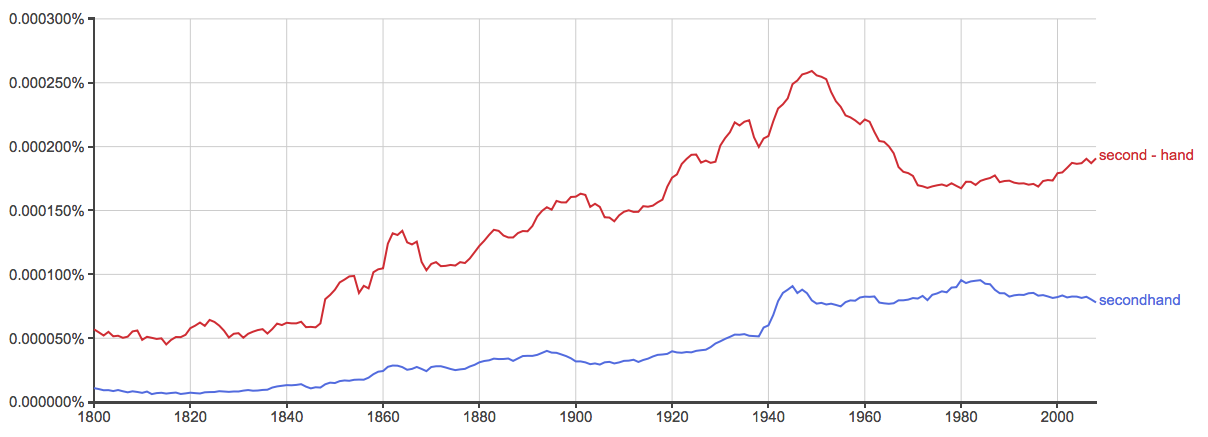Whether you learn something first-hand or firsthand may depend on where in the world you live.
Both of these terms mean the same thing, but they are standard forms of the same term in two different language communities. Americans and British love their spelling conventions, so you will need to remember when to use each if you want to avoid looking silly.
What is the Difference Between Firsthand and First-hand?
I will explain first-hand vs. firsthand in this article. I will continue by using each word in several example sentences that will allow you to see them in context.
Then, I will show you a mnemonic device that will make choosing first-hand or firsthand much simpler.
When to Use Firsthand
 What does firsthand mean? Firsthand is an adjective that describes a primary or original source. It is also an adverb that describes how someone learned something, namely, directly from the source.
What does firsthand mean? Firsthand is an adjective that describes a primary or original source. It is also an adverb that describes how someone learned something, namely, directly from the source.
Imagine a person handing off a piece of information to someone else. The first person to whom they give that information receives it firsthand. If that first person then gives it to someone else, the information is secondhand, and so on and so forth.
Here are a few more examples,
- I saw firsthand how ruthless and terrible the dictator was with his own people, feasting every night while the citizens starved.
- Firsthand accounts of the murder all agree that the killer sped away in an unmarked silver sedan.
- Speaking to reporters on Friday at his golf club in Bedminster, N.J., where he is spending a 17-day working vacation, Mr. Trump said he had intentionally kept his trips home to a minimum after seeing firsthand how disruptive presidential visits can be to New York. –The New York Times
When to Use First-hand
 What does first-hand mean? First-hand is an alternative way to spell firsthand. It means the same thing and can be used in all the same situations.
What does first-hand mean? First-hand is an alternative way to spell firsthand. It means the same thing and can be used in all the same situations.
British writers appear to prefer first-hand, while Americans use firsthand.
As a frontline clinician I witness first-hand the human cost of staff shortages, and last month the Royal College of Paediatrics and Child Health (RCPCH), of which I am president, also published a workforce report identifying serious staffing shortages nationwide, which has forced several children’s services to close temporarily. –The Guardian
The following charts graph firsthand vs. first-hand over time, in
American English:

And British English:

As you can see, Americans prefer firsthand, while the British prefer first-hand. This trend has been in place since the middle of the 20th century, when the Americans switched from first-hand to firsthand.
Americans tend to compound things at a faster rate than do British writers. But, as you can see, British writers are using the compounded firsthand with increasing frequency in recent years. Perhaps some day it will be the preferred form, but for now, British writers, stick with first-hand.
Second-hand and third-hand are also hyphenated in British English, but both are compounded in American English.
American English:

British English:

Anything further than that, e.g., fourth-hand, fifth-hand, and the like, is always hyphenated no matter who writes it.
When to Use First Hand
First hand is not an adjective phrase, but it does contain the adjective first. Any time you see this phrase in writing, it refers to the first in a series of hands.
If a ninja chops off the right hand of all his foes, the first time he did so, that foe’s hand would be the first hand he amputated. It’s a silly image, but that is the proper context for first hand.
Trick to Remember the Difference
Firsthand is standard in American English, while first-hand is standard in British English.
The British like to hyphenate things. Even some of their cities are hyphenated, like Stratford-upon-Avon.
Firsthand vs. First-hand Mnemonic: Since Stratford-upon-Avon and first-hand are both hyphenated British things, you should find it easy to remember that first-hand is the British spelling of this term.
Summary
Is it firsthand or first-hand? Firsthand is an adjective and an adverb, where it means primary or original and describes how someone learned something.
- Firsthand is how American writers spell the word.
- First-hand is how British writers spell the same word.
- First hand is an unrelated phrase that may pop up in certain specific contexts.
Contents
